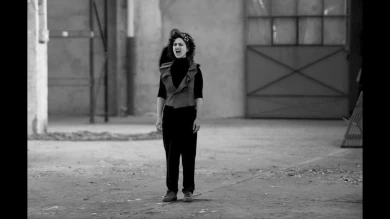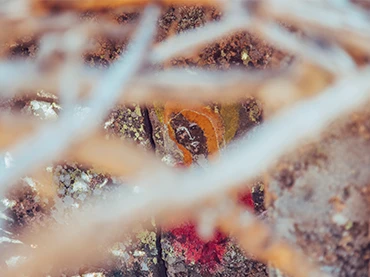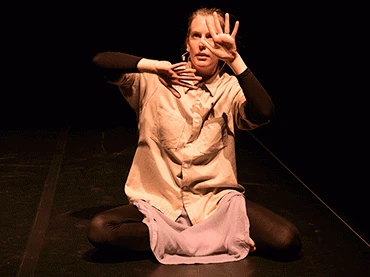-
Thursday, 13 October 2022 Sabatini Building, Room 102
Doble muda. Alejandra Pombo Su
TicketsAnimal presence is not theatrical; animals do not build an external image of themselves in relation to their appearance. Their behaviour is not based on trying to be something. Rather, their presence is full at all times. It is about being a situation and a place. The artist explores this animal presence with the voice, in vibration and transformation, as a body that sheds its skin towards an open and undefined space.
-
Thursday, 13 October 2022 Nouvel Building, Protocol Room
duet. Kike García and Fran MM Cabeza de Vaca
Ticketsduet is the search for different compositional, matter and movement-based relations via the dialogue between a violin, a shawl, a musician and a dancer. The qualities of each element are explored, from listening and touch, from passiveness with agency and enjoyment, from doing, undoing, re-making. The possibilities of dancing and touching become infinite and invite semantic liberation.
It is the weight, the volume, the caress, the acoustics, the “infamous” form that creates movement. The shawl also dances, moves, holds the person wrapped in it and adapts to new forms of being together. In conversation, the violin develops into a surface from which to resignify touch as tact: rubbing, brushing, vibrating and making the instrument’s wood emerge, the horse hair, the metal, air and strings, the meteoric relationship with the shawl.
-
Thursday, 13 October 2022 Sabatini Building, Room 102
Envioletá / un estudio. Javiera de la Fuente
TicketsHere the body is constructed, or, in addition to the body I carry — almost naked yet full of information — wishes to be emptied and filled again. It occurs once more in the encounter with flamenco, with a kind of skin I inherit but also choose, which questions and welcomes me.
Javiera de la Fuente
There was a time in the early musical career of Violeta Parra when, encouraged by her brother and guide Nicanor, she focused on Spanish genre music in the 1940s, ultimately winning a Spanish dance and song contest with the famed copla entitled La zarzamora. That little-known anecdote would give rise to Envioletá, a hybrid project lying between personal research on that universal artist, critical thought, flamenco, song, tradition and experimentation. More than an artwork, Envioletá is, above all, a series of physical and relational states, a mode of art-making and being. She presents here Envioletá / un estudio, a capsule that seeks to stir, move, slide, fade, touch and be touched by the tactile and the textile, singing and dancing this hidden part of the poetic, sound and performative legacy of Violeta Parra and also La zarzamora which mirrors flamenco culture.
-
Friday, 14 October 2022 Sabatini Building, Auditorium
ESTUDIO IV in Conversation
TicketsThis activity looks to bring the audience closer to the different performance pieces by approaching research fields which explore the different projects. Thus, it constitutes a common learning space in the form of a conversation between speakers in collaboration with the artists participating in this fourth edition. Set out around three conversations, the encounter prompts a reflection, questions and shared references as well as detecting and revealing common interests, connections and potential.
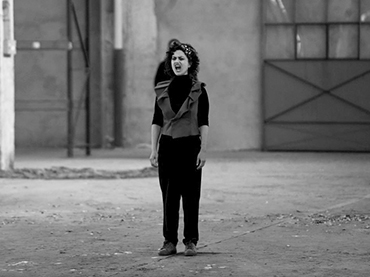
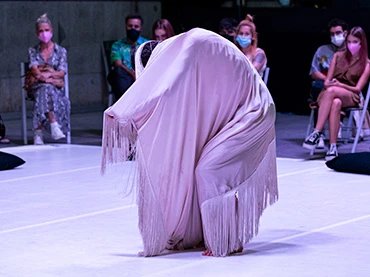
Held on 13, 14 Oct 2022
The Museo Reina Sofía presents the fourth edition of ESTUDIO, an annual programme which brings together work in a range of formats and is the outcome of research conducted by a series of artists and researchers whose practices are tied, either directly or dialogically, to the sphere of choreography and performance.
Under the title Second Skin. Subcutaneous, this latest edition approaches people’s relationship with the world through the skin, understood both in the literal sense, the integumentary system which covers the body of vertebrate animals, and figuratively, the layer or layers of experiences, affection, knowledge, tradition or bodily techniques determining appearance and relationships.
Under the skin, the fabric, the dress or the shawl, under the voice, the structure of language and the human appearance a subcutaneous surface stretches across which, like the skin, operates as a living organ. This second layer, furthermore, appeals to the archive of memories: that which is lived, inherited, learned, which is an unapproachable, hypodermic, printed archive in the lymphatic layer that acts as a membrane fostering symbiotic processes with the environment.
If, as Juhani Pallasmaa writes in The Eyes of the Skin. Architecture and the Senses (Wiley, 1996 [2012]), “all the senses, including vision, are extensions of the tactile sense, like specialisations of skin tissue”, then this programme calls upon us to haptically, sensually and sensorially move closer via works that experiment in and with the edges of the skin. The sonority of the voice, the physical vibration in space, reinforces and confuses the identification of the human voice as an animal roar. The movement of fabric on the body creates tension in the dialogue that dance, as a poetic movement and technical tradition, has held with certain textiles such as the Manila shawl or the tailed gown.
Therefore, in line with the dynamic of previous editions, ESTUDIO IV elicits a step-by-step journey over the course of an afternoon, offering three performances held in two spaces inside the Museo: the Nouvel Building’s Protocol Room, located in the building’s highest point, and Room 102 in the historic Sabatini Building, the site of the former San Carlos Hospital, founded in the eighteenth century. The programme is completed with ESTUDIO IV in Conversation, an encounter organised with dialogues between participating artists and speakers who collaborate in their processes.
[dropdown]
Ángela Bonadies is an artist whose work explores time and memory, that which resists, fades and which is out of place. Her practice sets out from photography, expanding towards mediums such as writing and drawing. She has participated in exhibitions that include A Universal History of Infamy (LACMA, Los Angeles and 18th Street Arts Center, Santa Monica, 2017), La pesca (Galería Freijo, Madrid, 2019), Cruzando la línea (Cinemateca Distrital de Bogotá, 2019), De confines y confinamientos (Fundación Municipal Bienal de Cuenca, Ecuador, 2020) and En las entrañas de la bestia (La Virreina Centre de la Imatge, Barcelona, 2022).
Ángel Calvo Ulloa is an exhibition curator and art critic with a degree in Art History from the University of Santiago Compostela and an MA in Contemporary Art from the University of Vigo. He has curated exhibitions such as Complexo Colosso (Centro Internacional das Artes José de Guimarães [CIAJG], 2021) and Habitación. Archivo F.X. (Centro de Arte Dos de Mayo [CA2M], Museu Nacional d'Art de Catalunya [MNAC] and La Nau, 2018–2019). Moreover, he has carried out projects for other institutions such as Artium Museoa in Vitoria-Gasteiz, the Museo de Arte Contemporánea de Vigo (MARCO), the Centro de Cultura de España in Mexico (CCEMX) and La Casa Encendida in Madrid, among others. Together with Juan Canela, he has published Desde lo curatorial. Conversaciones, experiencias y afectos (consonni, 2020).
Javiera de la Fuente is an artist and flamenco dancer who explores languages in close proximity to performance in unconventional stage spaces, combining critical reflection and dance in hybrid formats such as the performance lecture. She has performed with this format in the following spaces: Bergen Assembly (Aire del Mar. Canciones de la guerra social contemporánea, 2019), the European Forum For Advanced Practices at the Centro de Arte Dos de Mayo in Móstoles (El drama de una realidad Sur, 2019) and the Federico García Lorca Foundation in Granada (Una niebla invisible, 2022).
Kike García is a dancer, choreographer and embroiderer. He began learning taekwondo at the age of four and continued towards contemporary dance, butoh and flamenco, bringing together all of these languages of movement. A graduate from the HZT-UdK Inter-University Centre for Dance in Berlin, he has presented his work with different choreographers in Reykjavik, Madrid, Casablanca, Athens and Berlin. Furthermore, he has transferred his investigations in the field of movement, dance and performance over to embroidery.
Pablo Marte is an artist, writer and researcher who has made audiovisual and film pieces such as Imperial Eyes (2015), Mañana Goodbye (with Marion Cruza Le Bihan, 2016) and Venceremos (with Taxio Ardanaz, 2021). With consonni, he carried out the project El problema está en el medio (2013), the theatre work Again Again(st) (2013) and Pretty Woman (2014), a fictional essay in book format and a curatorial work featuring ten interventions by other artists. Moreover, he has collaborated with researchers like Isabel de Naverán, Aimar Arriola and Idoia Zabaleta. In 2021, he was involved in founding Basilika, a space of cultural critique podcasts, where he produces the programmes Sector Conflictivo and Informe Infame.
Fran MM Cabeza de Vaca is a composer, sound artist and music teacher. He has premiered instrumental, electronic and performance pieces at various national and international festivals, and as a composer and performer he has participated in the stage pieces La Casa, by Aitana Cordero, and ECLIPSE : MUNDO, by Paz Rojo. His audiovisual work has led to his involvement with the ZEMOS98 collective. Since 2012, he has worked closely with the poet María Salgado, most notably on the trilogy of audio-textile works Jinete Último Reino Frag.1-3 (2017–2021). As a performer, he is currently an active part of Fanfarria Transfeminista (Tansfeminist Fanfare) in Madrid.
Alejandra Pombo Su is an artist with a degree in Visual Arts from the Complutense University of Madrid, broadening her studies with the MA in Digital Arts from the Pompeu Fabra University and the Independent Studies Programme at the Museu d’Art Contemporani de Barcelona (MACBA). Her work moves between the visual arts, film and performance arts, and she has participated in projects such as What is Third (La Casa Encendida, Madrid, 2015) and Mugatxoan (LABoral, in Gijón, Fundação de Serralves, in Porto, and Arteleku de Donostia, 2004–2009). She has also carried out residencies at the Atlantic Center for the Arts (Florida, USA) and the PACT Zollverein (Essen, Germany), among others.
[/dropdown]
Participants

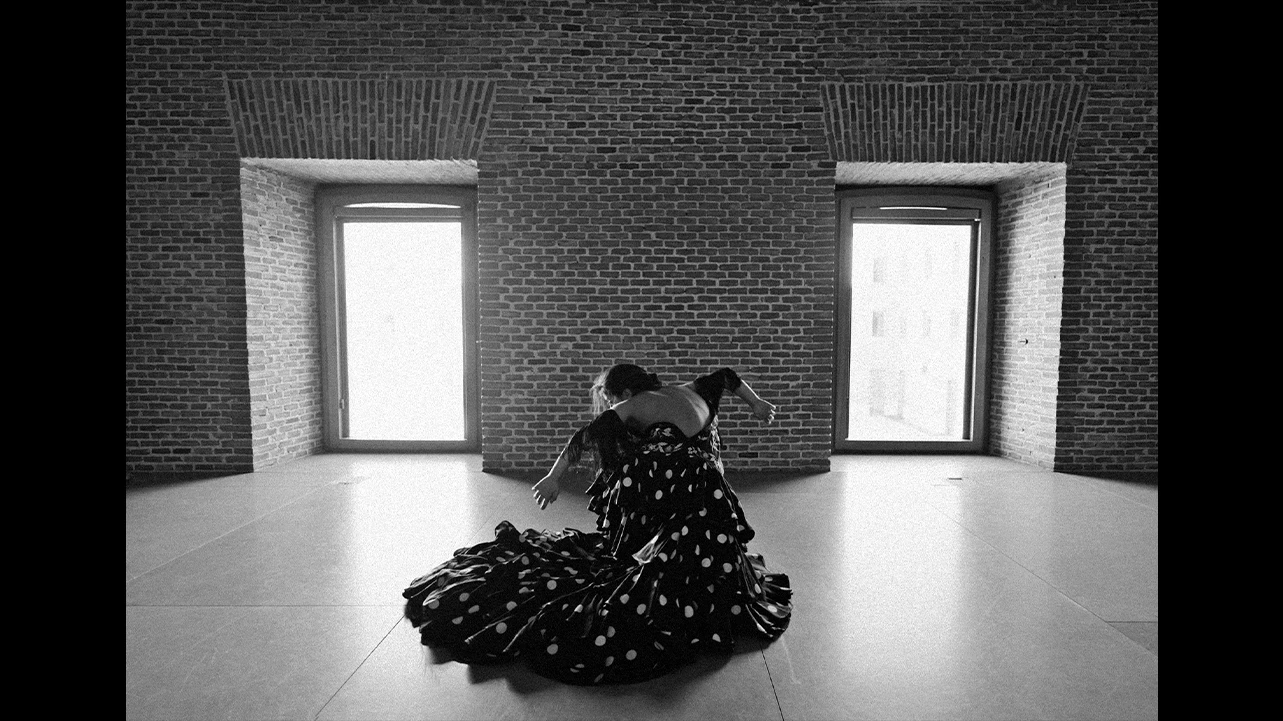
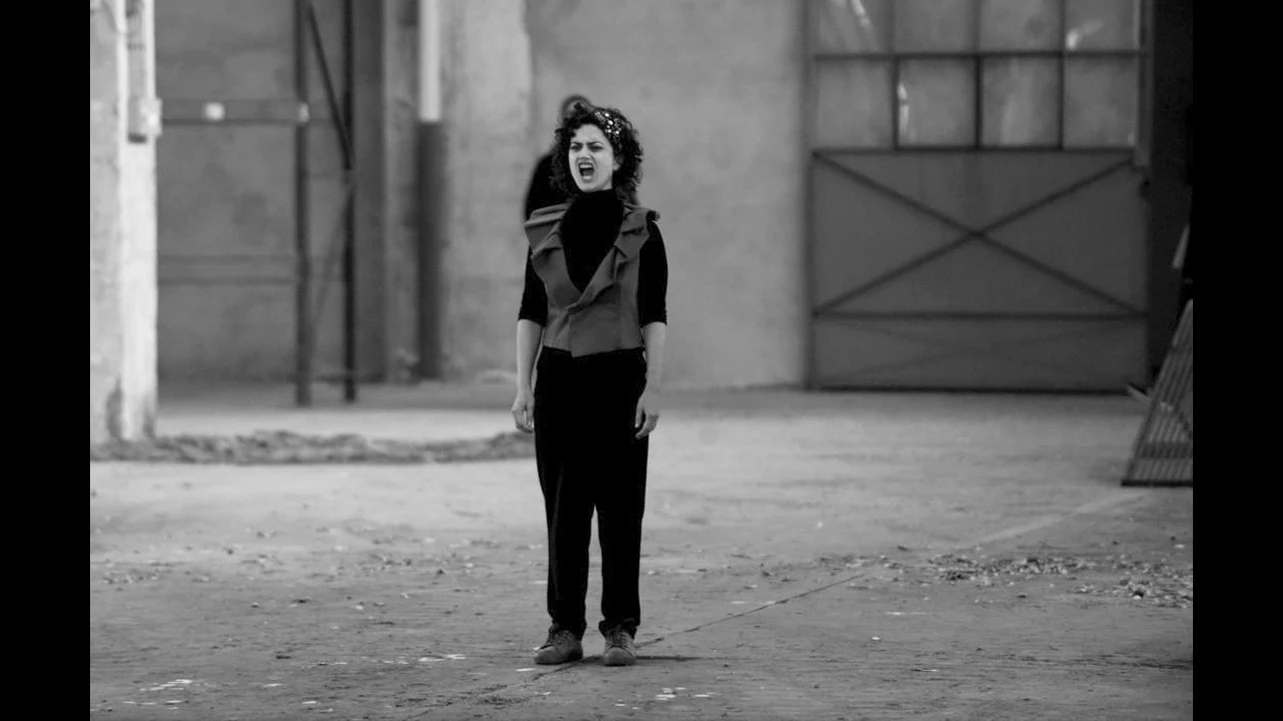
Más actividades

Aesthetics of Peace and Desertion Tactics
8 October 2025 – 24 June 2026
The study group Aesthetics of Peace and Tactics of Desertion: Prefiguring New Pacifisms and Forms of Transitional Justice proposes a rethinking—through both a theoretical-critical and historical-artistic lens—of the intricate network of concepts and practices operating under the notion of pacifism. A term not without contestation and critical tension, pacifism gathers under its name a multiplicity of practices—from anti-militarism and anti-war movements to non-violence activism—while simultaneously opening urgent debates around violence, justice, reparation, and desertion. Here, pacifism is not conceived as a moral doctrine, but as an active form of ethical and political resistance capable of generating aesthetic languages and new positions of social imagination.
Through collective study, the group seeks to update critical debates surrounding the use of violence and non-violence, as well as to explore the conflict of their representation at the core of visual cultures. In a present marked by rearmament, war, genocide, and the collapse of the social contract, this group aims to equip itself with tools to, on one hand, map genealogies and aesthetics of peace—within and beyond the Spanish context—and, on the other, analyze strategies of pacification that have served to neutralize the critical power of peace struggles. Transitional and anti-punitive justice proposals will also be addressed, alongside their intersections with artistic, visual, and cinematic practices. This includes examining historical examples of tribunals and paralegal activisms initiated by artists, and projects where gestures, imaginaries, and vocabularies tied to justice, reparation, memory, and mourning are developed.
It is also crucial to note that the study programme is grounded in ongoing reflection around tactics and concepts drawn, among others, from contemporary and radical Black thought—such as flight, exodus, abolitionism, desertion, and refusal. In other words, strategies and ideas that articulate ways of withdrawing from the mandates of institutions or violent paradigms that must be abandoned or dismantled. From feminist, internationalist, and decolonial perspectives, these concepts have nourished cultural coalitions and positions whose recovery today is urgent in order to prefigure a new pacifism: generative, transformative, and radical.
Aesthetics of Peace and Tactics of Desertion, developed and led by the Museo Reina Sofía’s Studies Management, unfolds through biweekly sessions from October to June. These sessions alternate between theoretical discussions, screenings, work with artworks and archival materials from the Museo’s Collection, reading workshops, and public sessions. The group is structured around sustained methodologies of study, close reading, and collective discussion of thinkers such as Judith Butler, Elsa Dorlin, Juan Albarrán, Rita Segato, Sven Lütticken, Ruth Wilson Gilmore, and Franco “Bifo” Berardi; historical episodes such as the anti-nuclear and anti-arms race movement in Spain; and the work of artists and activists including Rojava Film Commune, Manuel Correa and the Oficina de Investigación Documental (Office for Documentary Investigation), and Jonas Staal, among other initial cases that will expand as the group progresses.

Institutional Decentralisation
Thursday, 21 May 2026 – 5:30pm
This series is organised by equipoMotor, a group of teenagers, young people and older people who have participated in the Museo Reina Sofía’s previous community education projects, and is structured around four themed blocks that pivot on the monstrous.
This fourth and final session centres on films that take the museum away from its axis and make it gaze from the edges. Pieces that work with that which is normally left out: peripheral territories, unpolished aesthetics, clumsy gestures full of intent. Instead of possessing an institutional lustre, here they are rough, precarious and strange in appearance, legitimate forms of making and showing culture. The idea is to think about what happens when central authority is displaced, when the ugly and the uncomfortable are not hidden, when they are recognised as part of the commons. Film that does not seek to be to one’s liking, but to open space and allow other ways of seeing and inhabiting the museum to enter stage.

Intergenerationality
Thursday, 9 April 2026 – 5:30pm
This series is organised by equipoMotor, a group of teenagers, young people and older people who have participated in the Museo Reina Sofía’s previous community education projects, and is structured around four themed blocks that pivot on the monstrous.
The third session gazes at film as a place from which to dismantle the idea of one sole history and one sole time. From a decolonial and queer perspective, it explores films which break the straight line of past-present-future, which mix memories, slow progress and leave space for rhythms which customarily make no room for official accounts. Here the images open cracks through which bodies, voices and affects appear, disrupting archive and questioning who narrates, and from where and for whom. The proposal is at once simple and ambitious: use film to imagine other modes of remembering, belonging and projecting futures we have not yet been able to live.

Remedios Zafra
Thursday March 19, 2026 - 19:00 h
The José Luis Brea Chair, dedicated to reflecting on the image and the epistemology of visuality in contemporary culture, opens its program with an inaugural lecture by essayist and thinker Remedios Zafra.
“That the contemporary antifeminist upsurge is constructed as an anti-intellectual drive is no coincidence; the two feed into one another. To advance a reactionary discourse that defends inequality, it is necessary to challenge gender studies and gender-equality policies, but also to devalue the very foundations of knowledge in which these have been most intensely developed over recent decades—while also undermining their institutional support: universities, art and research centers, and academic culture.
Feminism has been deeply linked to the affirmation of the most committed humanist thought. Periods of enlightenment and moments of transition toward more just social forms—sustained by education—have been when feminist demands have emerged most strongly. Awareness and achievements in equality increase when education plays a leading social role; thus, devaluing intellectual work also contributes to harming feminism, and vice versa, insofar as the bond between knowledge and feminism is not only conceptual and historical, but also intimate and political.
Today, antifeminism is used globally as the symbolic adhesive of far-right movements, in parallel with the devaluation of forms of knowledge emerging from the university and from science—mistreated by hoaxes and disinformation on social networks and through the spectacularization of life mediated by screens. These are consequences bound up with the primacy of a scopic value that for some time has been denigrating thought and positioning what is most seen as what is most valuable within the normalized mediation of technology. This inertia coexists with techno-libertarian proclamations that reactivate a patriarchy that uses the resentment of many men as a seductive and cohesive force to preserve and inflame privileges in the new world as techno-scenario.
This lecture will address this epochal context, delving into the synchronicity of these upsurges through an additional parallel between forms of patriarchal domination and techno-labor domination. A parallel in which feminism and intellectual work are both being harmed, while also sending signals that in both lie emancipatory responses to today’s reactionary turns and the neutralization of critique. This consonance would also speak to how the perverse patriarchal basis that turns women into sustainers of their own subordination finds its equivalent in the encouraged self-exploitation of cultural workers; in the legitimation of affective capital and symbolic capital as sufficient forms of payment; in the blurring of boundaries between life and work and in domestic isolation; or in the pressure to please and comply as an extended patriarchal form—today linked to the feigned enthusiasm of precarious workers, but also to technological adulation. In response to possible resistance and intellectual action, patriarchy has associated feminists with a future foretold as unhappy for them, equating “thought and consciousness” with unhappiness—where these have in fact been (and continue to be) levers of autonomy and emancipation.”
— Remedios Zafra

27th Contemporary Art Conservation Conference
Wednesday, 4, and Thursday, 5 March 2026
The 27th Contemporary Art Conservation Conference, organised by the Museo Reina Sofía’s Department of Conservation and Restoration, with the sponsorship of the Mapfre Foundation, is held on 4 and 5 March 2026. This international encounter sets out to share and debate experience and research, open new channels of study and reflect on conservation and the professional practice of restorers.
This edition will be held with in-person and online attendance formats, occurring simultaneously, via twenty-minute interventions followed by a five-minute Q&A.
